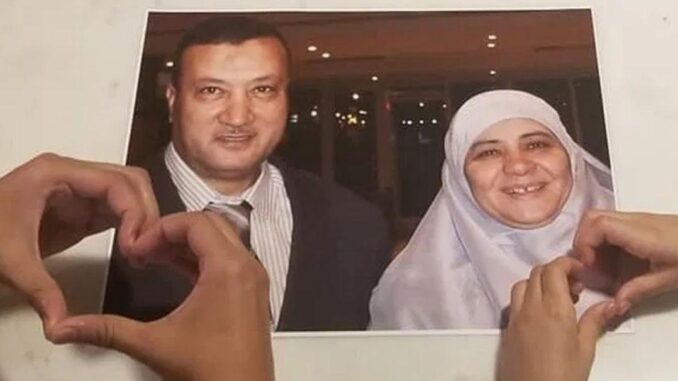
One more Egyptian political detainee died in the notorious Scorpion prison Wednesday, 3 September, as a result of medical negligence, his family and human rights advocates said on Facebook.
Ahmed Abdelnabi, 63, suffered from “multiple chronic illnesses, including asthma, high blood pressure, diabetes, and herniated discs in his neck,” according to a Facebook page that was created and maintained by his daughters to provide updates on the campaign for his release.
Abdelnabi was often deprived of food for prolonged periods, clean water, clothing, or medication.
He is one of four Egyptians to die in prison in the last 48 hours, between 31 August and 2 September, according to Al Jazeera news website.
Abdelnabi was detained in Cairo airport, along with his wife and daughter, on their way to leave the country in March 2018. His daughter was released and his wife Raia was acquitted with no charge on precautionary measures, which require her to attend a local police station for two hours a week.
Three days ago, Sobhi Al-Saqqa, the former head of the Egyptian teachers’ union in the city of Amiriyya also died in prison due to medical negligence, reported Al-Khaleej Al-Jadeed news website.
Sobhi Al-Saqqa was detained in the Borg Al-Arab prison. Located in northern Egypt, the prison has reportedly witnessed similar deaths among detainees in the past.
Authorities have issued no statements on reports of Al-Saqqa’s death, which came shortly after the death of prominent Muslim Brotherhood leader Essam El-Erian who was being held in the notorious Scorpion prison in Cairo.
Human rights advocates believe that political detainees in Egypt suffer from shortages of food, medicines and a lack of access to medical care.
According to a recent report issued by the Geneva-based human rights organization Committee for Justice, Egyptian detention facilities have seen 68 deaths in the first half of 2020 alone.
Titled “From Neglect to Calamity”, the report adds that the cases are “spread between 10 unjust executions, 51 deaths as a result of the denial of health care, 3 deaths as a result of torture, and 4 deaths as a result of poor detention conditions.”
Since Egypt’s Defense Minister, turned President, Abdel Fattah Al-Sisi, led a military coup in 2013, authorities have launched an unprecedented and prolonged crackdown on opponents and dissidents.



